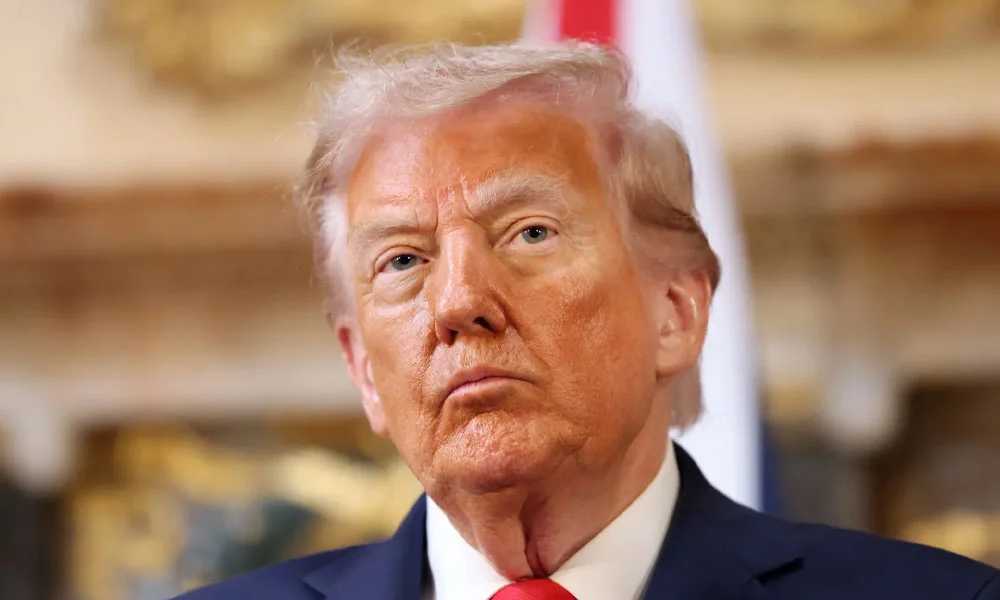For years, Donald Trump has been hammering the same message — that America’s Democratic-run cities are out of control, lawless, and descending into chaos. He’s painted this dystopian image since his 2016 campaign and leaned on it heavily throughout his presidency, even coining the term “American carnage” in his inaugural address.
But now, that vision is being systematically torn apart — in courtrooms across the country, often by judges Trump himself appointed. The very legal system he once sought to bend to his will is now exposing the hollowness of his claims.
In the past week alone, two separate federal judges have ruled against Trump’s attempts to deploy the military to suppress what he called uprisings in Chicago and Portland. Both decisions made one thing clear: the chaos Trump keeps describing simply doesn’t exist.
In Chicago, his depiction of the city has veered into absurdity. At one point, he even shared a meme likening the city to Apocalypse Now, showing helicopters hovering above a burning skyline. His administration insisted that Chicago faced “a rebellion or danger of a rebellion,” justifying the intervention of federal troops.
But Judge April Perry wasn’t convinced. She determined there was no rebellion — only a modest protest of roughly 200 people, easily contained by local police. The Department of Homeland Security’s reports, she said, were “simply unreliable” and “lacking credibility.” Perry went further, questioning the foundation of the administration’s actions: “What if (the president) is relying on invalid evidence?” she asked, according to WTTW-TV.
The pattern repeated in Portland, where Trump-appointed Judge Karin Immergut dismantled his narrative piece by piece. Trump had described Portland as “war ravaged” and “almost an insurrection.” But Immergut’s ruling painted a starkly different picture. While there had been scattered unrest near an ICE facility earlier that summer, she found that “by the time Trump ordered in the troops, those protests had largely fizzled out.”
“The protests have been such a minor issue, that the normal nightlife in downtown Portland has required more police resources than the ICE facility,” she wrote. And she didn’t stop there: “The President’s determination was simply untethered to the facts.”
Trump’s claims about Los Angeles haven’t fared any better. Just weeks ago, another judge dismissed his dramatic warnings that the city was “under siege.” Judge Charles Breyer, appointed by Bill Clinton, acknowledged there had been protests — and even some rowdiness — but said it resembled “what you’d see after a Dodgers or Lakers championship” rather than an insurrection.
“There was no rebellion,” Breyer said. “Nor was civilian law enforcement unable to respond.” He even contrasted Trump’s version of events with the 1894 Pullman Strike, a genuine rebellion that crippled the country’s infrastructure — noting that Trump’s claims weren’t even close.
Trump’s “invasion” rhetoric has also collapsed under judicial scrutiny. He’s repeatedly described migration across the southern border as an “invasion,” invoking laws meant for wartime emergencies. But courts aren’t buying it.
Judge Leslie Southwick, a George W. Bush appointee, ruled that “A country’s encouraging its residents and citizens to enter this country illegally is not the modern-day equivalent of sending an armed, organized force.”
Similarly, Trump-nominated Judge Fernando Rodriguez Jr. dismissed Trump’s claims about the Venezuelan gang Tren de Aragua. “The Court concludes that they do not fall within the plain, ordinary meaning of ‘invasion’ or ‘predatory incursion,’” he wrote.
To be clear, no one is denying that America faces real challenges. Trump himself survived an assassination attempt. Democratic officials have faced credible threats. Crime remains a concern in some cities. But data tells a different story — violent crime rates are actually higher in many Republican-led states, and in places like Chicago, crime has been trending downward.
What Trump consistently omits is context. He doesn’t just exaggerate; he paints a nation in collapse to justify extraordinary, unilateral powers. And one by one, the courts — including his own appointees — are calling it what it is: fiction.
They’ve examined the evidence, reviewed the law, and concluded that Trump is fighting phantoms of his own making. He’s not confronting chaos — he’s manufacturing it.
He’s waging war against a myth. And this time, the courts are refusing to play along.


